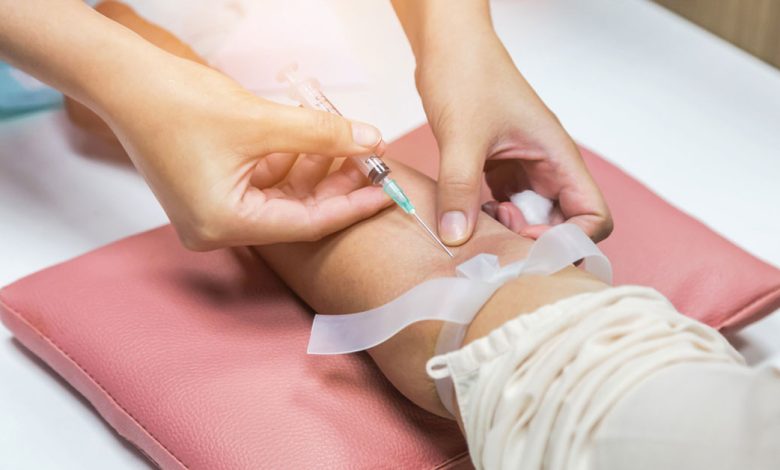Fasting blood test: How long should people stay without food?

As a matter of principle, it is always recommended to be fasting before taking a blood sample. Because if certain dosages do not require it, the prescription usually includes several analyzes. A forced diet of a few hours is therefore preferable in order not to falsify the results.
Among the dosages for which the young person is imperative, there may be mentioned: blood glucose, HGPO test (test for gestational diabetes), lipid balance, cholesterol, triglycerides or even serum iron.
Fasting blood test: What does it mean?
Before a blood test, fasting is required for at least 12 hours. So if you plan to go to the lab at 8:30 in the morning, you should stop eating and drinking alcoholic or sugary drinks at 20H30. You can easily have a light meal the night before but then it is very important to refrain from eating. On the morning of the exam, you should skip breakfast.
If you know you’re having trouble getting by, try going to the lab as soon as possible and bringing a snack to take soon after the blood test. Depending on the dosage to be carried out, the recommended fasting time may vary. Thus, for some tests, an 8- or 9-hour fast is sometimes sufficient. Don’t hesitate to ask your lab if you have any doubts.
Fasting blood test: you should not eat, but you can drink!
As you will have understood, the objective of this fast is to allow an optimal interpretation of the results of the blood test. However, if you do have to abstain from eating, you have the right to drink water (and only water!), even on the morning of the exam.
It is also recommended to avoid strenuous physical activity within 24 hours before taking blood and to refrain from smoking on the day.












